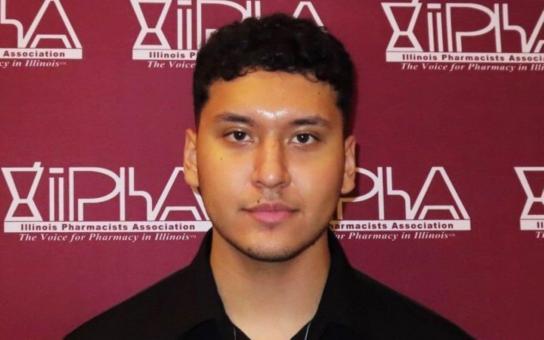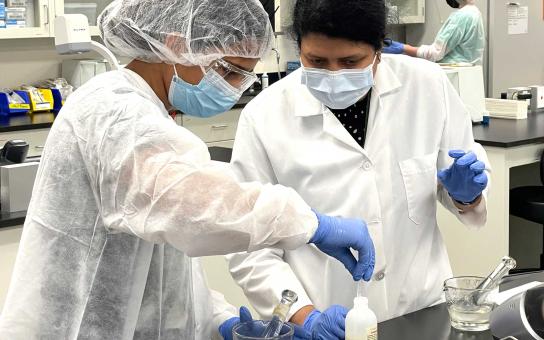
Ever since attending Roosevelt as a biology undergraduate, Dr. Rajalekshmy “Raji” Shyam has been compelled to assist the disadvantaged—particularly when it comes to vision. As a tenured-track professor at Indiana University, she works tirelessly as a researcher to develop treatments for glaucoma and macular degeneration, and she credits her drive to her experiences at Roosevelt.
“I am grateful for the fantastic education from RU that opened up a world of possibilities for me,” she says. “I was drawn to the core idea of social justice at RU, and I have done my best to be true to this philosophy throughout my career.”
When Shyam reached out to Dr. Kelly Wentz-Hunter from the College of Health, Science & Pharmacy to work on her honors thesis project, she was immediately driven to pursue ocular science at a research level.
“I view my introduction to research and vision-related research as serendipitous,” she says. “I reached out to Dr. Wentz-Hunter to work on my honors thesis project, and she introduced me to the field of vision research and helped me believe that I have what it takes to succeed. She made introductions, which helped me further my understanding of the inner workings of research lab, and solidified my passion to pursue this career. She was instrumental in getting me started in the research field, and I am very grateful!”
Shyam continued her research at the University of Illinois Chicago (where she identified how protein malfunctions can contribute to glaucoma) and the University of Utah (where as a PhD student she discovered a pigment mechanism that can potentially reduce age-related retina deterioration). As a post-doctoral fellow, she also identified two distinct ways—pharmacological and gene therapy—to treat rare cases of corneal dystrophy. She now works tirelessly in Bloomington by teaching first-year optometry students about ocular anatomy and leading a research lab to study cell dysfunctions that lead to Fuchs corneal endothelial dystrophy (a blinding disease). Shyam frequently works with vision-impaired patients and understands how important the research she and her students can be for the future.
“Loss of vision is one of the biggest fears of all human beings,” she says. “While it can be easily diagnosed, in many cases there are no cures for many vision-related disorders. Understanding how these diseases progress at a cellular level can help devise therapies and in some cases entirety prevent the occurrence of the conditions.”
Dr. Shyam’s work has so far been published over 1,000 times in 18 different publications, and she has received several grants including the NIH T-32 Vision Training Grant (2016-2017), the Indiana CTSI TL1 post-doctoral fellowship (2018-2020), the Knights Templar career starter grant (2019-2021) and the NIH K99/R00 Pathway to Independence Award (2021-2026).


